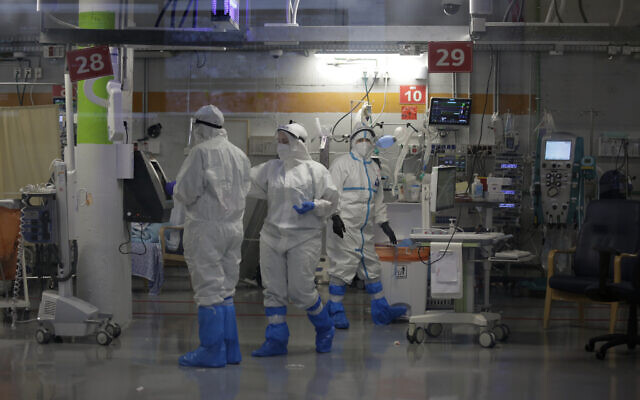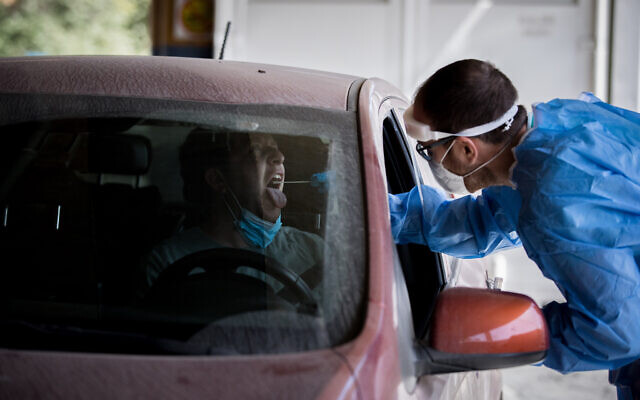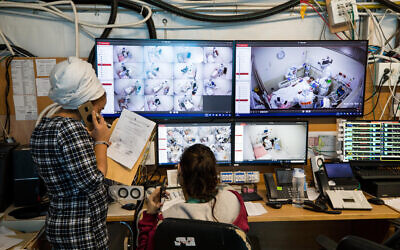Health Ministry says 810 people in serious condition, with 206 on ventilators, amid worries over hospitals being unable to cope with influx of patients

The Health Ministry announced on Thursday morning that a record-high nearly 9,000 new coronavirus cases were diagnosed a day earlier, as infections continued to climb and worries mounted of hospitals being overwhelmed by the runaway surge.
According to the ministry, 8,919 new coronavirus cases were recorded on Wednesday, raising the number of infections since the pandemic began to 248,133.
The previous high of 8,385 cases in a single day was notched on September 25, but the last several days saw infection numbers drop to a few thousand as testing levels fell off due to the weekend and the Yom Kippur holiday.
The Health Ministry said 65,694 tests were performed Wednesday, which also appeared to be a record high. The ministry said 13.6 percent of cases came back positive.
Two new deaths were also recorded since Wednesday evening, bringing the toll since the start of the pandemic to 1,571.
The official figures showed that there had been 43 deaths announced over the previous 24 hours.
Of the 68,811 active cases, the number of people in serious condition stood at 810, with 206 on ventilators. The numbers were slightly lower than on Wednesday, which saw serious cases rise to over 830 for the first time.
Officials have warned that hospitals will begin to be overwhelmed once the number of serious patients rises above 800.

Prime Minister Benjamin Netanyahu told officials on Wednesday to prepare a plan for 5,000 seriously ill patients by next week, according to Channel 13 news.
Heads of internal medicine departments at Israeli medical centers warned Wednesday that overcrowding and staff shortages meant they were having difficulty treating patients suffering from other illnesses.
“Out of 111 internal [medicine] departments at hospitals, already more than 40% have been turned into coronavirus wards,” Avishai Ellis, head of the Internal Medicine Association, was quoted saying by Channel 12 news.
Other medical officials said more health workers were needed to deal with the influx of patients, while some called for more hospital beds.

“We need to create more places and more free beds for additional coronavirus patients,” Dr. Guy Hoshen of Tel Aviv’s Ichilov Hospital said. “We’re releasing patients in serious condition according to the Health Ministry’s criteria who still need oxygen.”
Netanyahu’s comments came during a cabinet meeting during which ministers voted to extend an existing nationwide lockdown meant to bring down infection rates.
The ministers also voted to place new limits on protests, a controversial measure which must still be approved by the Knesset.
The lockdown, which was supposed to end on October 11, will now remain in force until October 14, according to Hebrew media reports.
The current national lockdown, Israel’s second since the start of the COVID-19 pandemic, began on September 18 and was significantly tightened last Friday.
Ministers also approved fining anyone caught in a sukkah not their own NIS 500.
As reported by The Times of Israel
